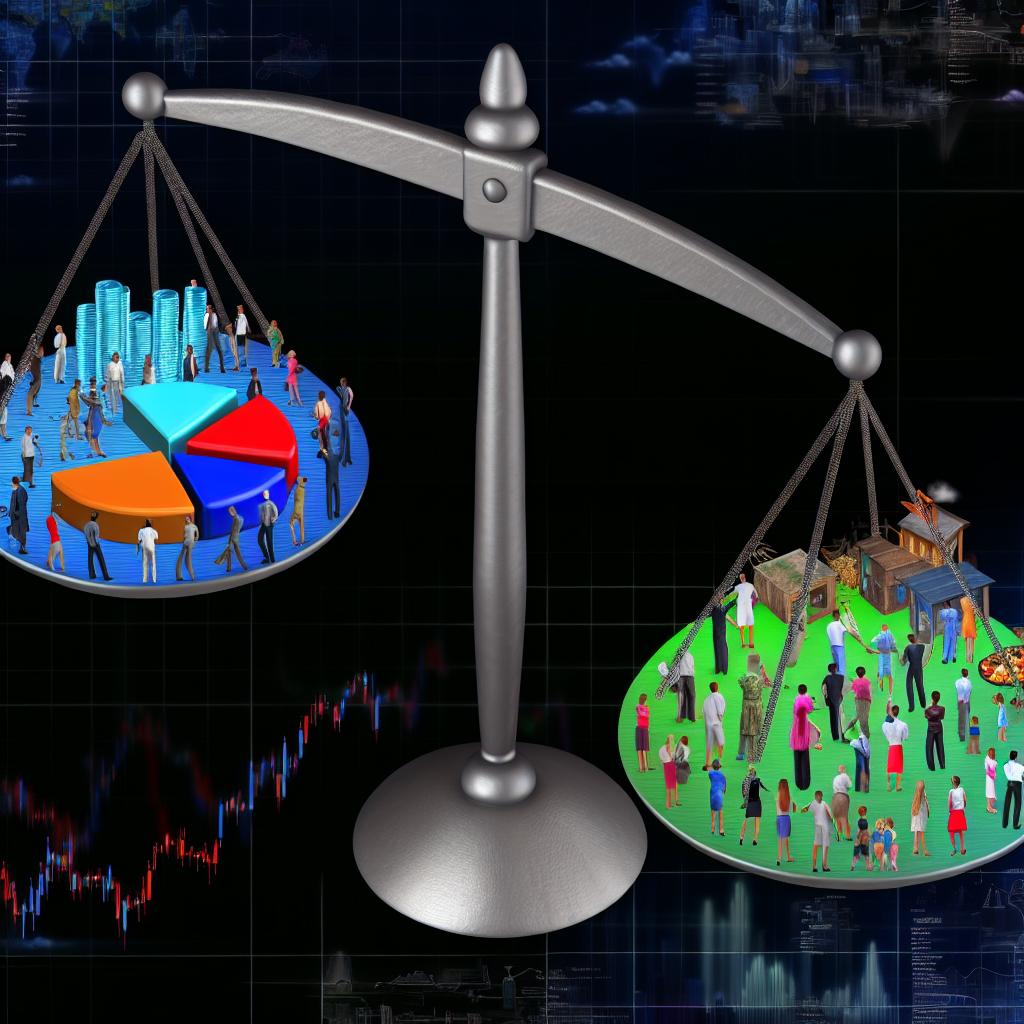Introduction
Stock markets hold a significant position in the economy as both a driving force and a reflector of its health. Understanding how stock markets interact with economic indicators is crucial for investors, policymakers, and anyone interested in financial markets. This article delves into the dual role of stock markets: how they affect the economy and how they serve as a barometer of economic conditions.
The Stock Market as an Economic Indicator
The stock market is often seen as a mirror reflecting the collective expectations and sentiments of investors regarding future economic performance. As investors engage in buying and selling shares, market indices show movement—rising or falling—to indicate the overall sentiment about economic prospects.
Market Indices: These indices, prominently including the S&P 500, Dow Jones Industrial Average, and NASDAQ, offer snapshots of overall market performance. An upward trend in these indices generally suggests investor confidence in economic growth and stability. When investors are optimistic, they believe that the companies underlying the indices will prosper, leading to economic expansion.
Investor Sentiment: The stock market can act as a proxy for gauging investor confidence. Bull markets, typically characterized by rising share prices and increased buying activity, often signal widespread optimism about economic conditions. Conversely, bear markets, marked by declining prices and increased selling, might indicate caution, pessimism, or uncertainty about economic stability.
Impact of Stock Markets on the Economy
While acting as a reflection of economic conditions, stock markets also actively influence economic activity through several mechanisms:
Wealth Effect: One of the primary ways in which stock markets impact the economy is through the wealth effect. As stock prices climb, the wealth of investors—particularly those with substantial equity holdings—tends to increase. This rise in personal wealth can lead to increased consumer spending, as individuals feel more financially secure and are more likely to purchase goods and services. Enhanced consumer expenditure, in turn, fuels economic activity and can contribute to economic growth.
Capital Formation: Stock markets serve as critical platforms for facilitating capital flow to businesses. By issuing stocks, companies can access the funds needed for investment in research, development, and expansion. This flow of capital promotes innovation, business expansions, and the general growth of the economy, as businesses tap into new markets, improve efficiency, or offer new products and services.
Cost of Capital: The condition of the stock market can heavily influence the cost of raising capital for businesses. In a thriving stock market with high stock prices, companies can raise funds more efficiently through equity financing, making it less expensive to secure the financial resources they need for various ventures. Conversely, during periods when the stock market is depressed, with lower stock prices, raising capital becomes more challenging and costly, potentially stalling business investments and growth.
Interpreting Market Signals
Although stock markets provide valuable insights into economic conditions, interpreting these signals requires discernment due to several influential factors:
Market Volatility: Stock markets are inherently volatile, with prices subject to rapid changes resulting from various elements, including political developments, changes in monetary policy, and shifting global economic conditions. This volatility means that dramatic swings in stock prices may not always correlate directly to underlying economic realities.
Speculation and Short-termism: Market movements can sometimes be driven by speculative activities rather than fundamental economic shifts. Speculation, often fueled by investor sentiment and market rumors, can distort true market conditions, as short-term minded investors may react quickly to perceived trends rather than the actual economic environment.
Global Factors: In today’s interconnected economy, developments in one region can have significant ripple effects across global markets, complicating the task of tying stock market trends directly to domestic economic conditions. For example, geopolitical tensions or changes in trade policies in one country can affect stock markets and economies globally, influencing investor behavior and economic predictions elsewhere.
Conclusion
The intricate relationship between stock markets and the economy underscores their dual role as both influencers and mirrors of economic health. Stock markets provide valuable insights into market sentiment and potential economic prospects. However, their analysis must be approached with care, given the multitude of factors that drive market behavior, including volatility, speculation, and global interdependencies. By understanding these dynamics, stakeholders, including investors, policymakers, and economists, can better navigate the complexities of financial markets and make more informed decisions concerning economic strategies and investments.
This article was last updated on: June 9, 2025




